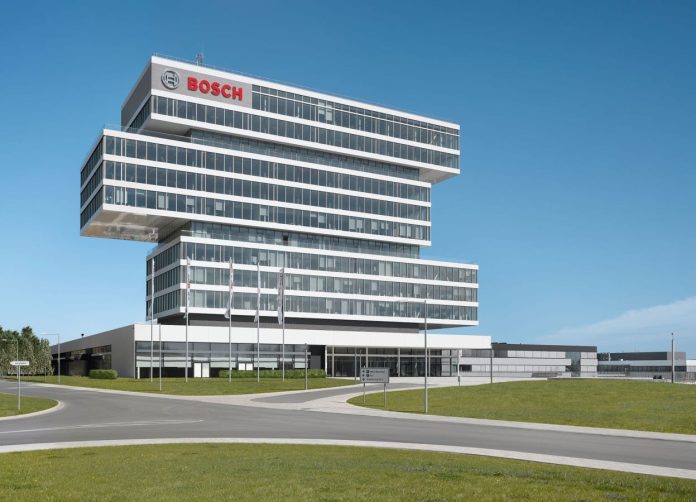German industrial giant Bosch, an early champion of privately operated industrial 5G for manufacturing, has confirmed it has applied for localised spectrum licenses in Germany and will trial private 5G campus networks at at least two sites in the next months, and deploy full 5G networks in its own spectrum during in 2020.
Bosch has initially applied for 5G operating licenses for the lead plant for Industry 4.0 in Stuttgart-Feuerbach and the research campus in Renningen. Trials at the sites using provisional spectrum holdings already granted by BNetzA, the German telecoms regulator, will commence right away.
Bosch said it will work with “selected partners” from the telecoms vendor community, as well as with industrial specialists providing IoT and AI solutions.
Michael Bolle, the company’s chief digital officer and chief technology officer, commented: “As an IoT company, Bosch began researching into 5G early. The new communications standard is a key to automated and connected driving, and an essential element of the factory of the future.”

The German regulatory authorities have set aside the frequency band from 3,700 to 3,800 MHz for this purpose. Frequencies will be allocated according to demand, with preference given to Industry 4.0 or agricultural and forestry applications.
Licenses will be granted for an initial period of 10 years. The fee for each license has been set at just €1,000. Bandwidth allocations have been set for at least 10MHz to a maximum of 100MHz, depending in part on what the application is for, and distinguishing between built-up areas, transport routes and other areas.
Bosch has raised more than €1.5 billion in revenue from the implementation of Industry 4.0 techniques in its own factories, as well as its customers’ factories, during the past four years, it reckons. The company has set an incremental revenue target of €1 billion per annum by 2022 from applying digital-change solutions inside and outside of its own factories.
The company has 280 plants worldwide. It has been outspoken about the potential of 5G, notably in private operation, to transform its operations. The only fixed elements in its vision of the ‘factory of the future’ are floors, walls, and ceilings, it has stated. Everything else – including mobile robots, autonomous vehicles, and even production lines – can be reconfigured at will.
Low-latency, high-reliability wireless connectivity, of the type promised by 5G, is a key plank for this vision.
Rolf Najork, board member responsible for industrial technology, commented: “Private campus networks offer a maximum of security and independence. 5G speeds up industrial manufacturing processes. By establishing local 5G networks, we will be able to take a significant leap forward in our ambitions to create the factory of the future.”
The company said private 5G networks “virtually” eliminate dependence on third-party providers. Their management by industrialists, rather than technologists, will also bring tighter control to business critical operations and processes. Owner-operated 5G networks reduce business risks and preserve data sovereignty, it said, as dedicated interfaces are used for connections to the internet and other public networks, and are continuously monitored.
Andreas Müller, researcher at Bosch and chairman of the 5G Alliance for Connected Industries and Automation (5G-ACIA), commented: “By setting up and operating their own wireless networks, manufacturers can configure them to meet the often highly demanding requirements of industrial communication applications.

“This solution also gives them full control over relevant security concerns. For instance, if the public network is overloaded, local 5G networks permit factory operations to continue without losing control of the system.”
He went on: “Campus networks allow us to decide for ourselves what architecture and security features best suit our needs, and what equipment we will use to implement them. And we know who has access to specific components and data.”
The company also highlighted certain industrial uses cases that will be enabled by 5G, including real-time remote control of machinery, down to emergency stops.
Müller said: “Almost every machine [in a factory today] has an operating console with an emergency off switch. Someone has to press that to bring the machine to a standstill. With 5G, the operator doesn’t need to be near the machine: emergency stop and other functions can be executed using a mobile device. This makes the operator’s work easier, and helps save costs.”

